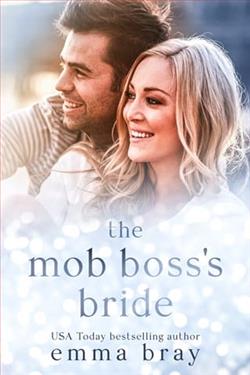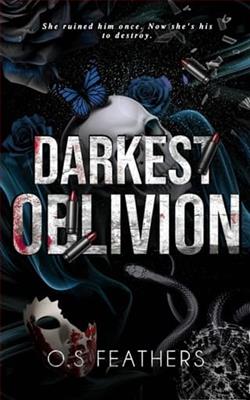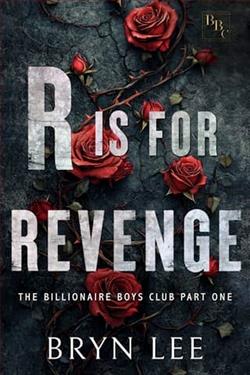Page 5 of Beloved Enemy
But this now, whatever this was, meant she had some serious soul searching to do. She had to look deep inside herself and not with some want to improve, but to figure out where the hell she’d gone wrong or had been misled, or where she’d lost touch with reality.
She was, it was obvious now, bat-shit crazy.
But somehow she’d missed it, or if the condition were new, she’d not been alarmed by any useful warning signs. Surely there were warning signs. There should have been. A woman didn’t one day just fall off her rocker without any warning, did she?
Oh, thank God Gram was no longer alive to see this, to see her only granddaughter lose her mind.
And yet, “Thanks, Gram!” Charlotte muttered with a bit of misplaced annoyance. It was, after all, her grandmother’s constant and proud talk of her Scottish heritage, and her life in Kintore, Aberdeenshire, before she’d moved to the United States when she was nineteen that had brought Charlotte first to Scotland and now to apparent madness.
“Get it together, Charlotte,” she scolded herself.
For good measure, though she’d done this once already, she revisited every minute of her day, trying to figure out how she’d ended up here.
She’d been in Scotland for only three days, had landed at Edinburgh Airport, had stayed there for two nights in the capital, visiting Edinburgh Castle and taking a walking tour of the underground vaults in Edinburgh’s Old Town, and sampling Scotland’s iconic haggis. This morning, she’d rented a car that she expected to use for the remainder of her trip and had driven to Fort William, and there began the trouble. After checking into her hotel, she’d gone outside and walked only a few blocks to The Nevis Market, having been advised by the very friendly woman behind the inn’s desk that the market only took place once a month in the summer. Charlotte had scanned the flyer she’d been given, which announced that The Nevis Market was a “car boot, jumble sale, bric-a-brac, craft fayre extravaganza”.
Actually, the small market had been fun. She’d bought a bar of artisan soap and a candle with pieces of heather in it that smelled heavenly. She’d purchased and snacked on what had been billed as Scotch pies—a small, savory meat pie that had been a little messy to eat on the go but was delicious—and was talked into accepting the necklace she now wore, and which she was now convinced was cursed.
Yes, cursed.
The woman who’d given her the necklace had been, well, she’d been sketchy. Charlotte likened her to a Disney witch, a caricature of a crone, bent and hooded, with a craggy voice.
“Gram says hello,” the woman had said as Charlotte had idled by. She’d thought at first the woman was merely speaking in the third person, referring to herself as “Gram”. But then the woman had added, “She’s glad you made the trip, says this is where you’re meant to be.”
Charlotte’s polite smile had faltered, and she’d given the woman and her booth a second glance.
The stall was a cluttered affair, an eclectic mix of trinkets and oddities that seemed to belong in a curiosity shop ratherthan a street fair. A faded, patchwork awning provided shade for a wooden table draped in dark, velvety fabric that had seen better days. The table was crowded with an assortment of items: old, leather-bound books with mysterious titles in faded gold leaf, tiny carved wooden boxes, and glass jars filled with herbs, stones, and powders of various colors.
Dangling from the edges of the stall were strings of beads and charms, some of which swayed and tinkled softly though there was no breeze. The air around the booth was thick with the scent of incense, and hints of an odor that reminded Charlotte of the church her grandmother used to take her to.
Displayed prominently on the table was a collection of jewelry, each piece more peculiar than the last. There were necklaces made of polished stones, rings set with oddly shaped gems, and bracelets adorned with tiny, pewter charms, all of which seemed to Charlotte to be estate items, relics.
The woman had shuffled forward and taken a necklace from the display, swiveling and putting it almost right beneath Charlotte’s nose.
The necklace was interesting. The pendant itself was an intricate piece of craftsmanship, made from a metal that shifted colors between silver and a deep, aged bronze. At its center was a stone of deep blue-gray labradorite that shimmered with flashes of blue, green, and fiery gold when it caught the light. Encircling the stone was a swirling design of delicate filigree, resembling twisting vines that seemed to move as the light played across it. Charlotte had bent forward, studying it more closely. Tiny symbols were etched into the metal around the edge, giving it an ancient feel.
“Special, this one is,” the crone had said, her voice a gravelly whisper. “It’s meant for you. Gram knows.”
Charlotte had hesitated, her fingers brushing over the stone. The din of the market had faded in the background, and shewould later think there’d been a moment when it seemed she and the woman and the pendant had been alone in the world.
There had been something almost hypnotic about the necklace; she hadn’t been able to take her eyes off it.
Shaken by what struck her as an odd reaction to a piece of what was surely cheap costume jewelry, one that she would never wear, Charlotte had given herself a mental shake.
“Oh, no. I don’t really wear too much jewelry,” Charlotte had politely declined, giving a falsely rueful smile as she might have given to any pushy salesperson.
“'Tis not to wear but to use,” had been the woman’s curious response.
Taking a step backward from the woman who didn’t understand personal space, she’d questioned, “To use?”
“Aye, you’ll need this to get where you’re going.”
“I don’t—I’m not sure I...” she’d stammered.
“And you won’t understand until you get there,” the old woman had said cryptically. She’d stepped forward and had taken Charlotte’s hand, laying the pendant in her palm and closing her fingers around it. “'Tis meant to be yours.”
Resigned that it might be easier simply to buy the gaudy piece, that maybe the haggard old woman was in dire straits—Charlotte couldn’t imagine she sold much from her tired, bleak booth—she’d asked the price.
“No price on love,” the woman had said.















